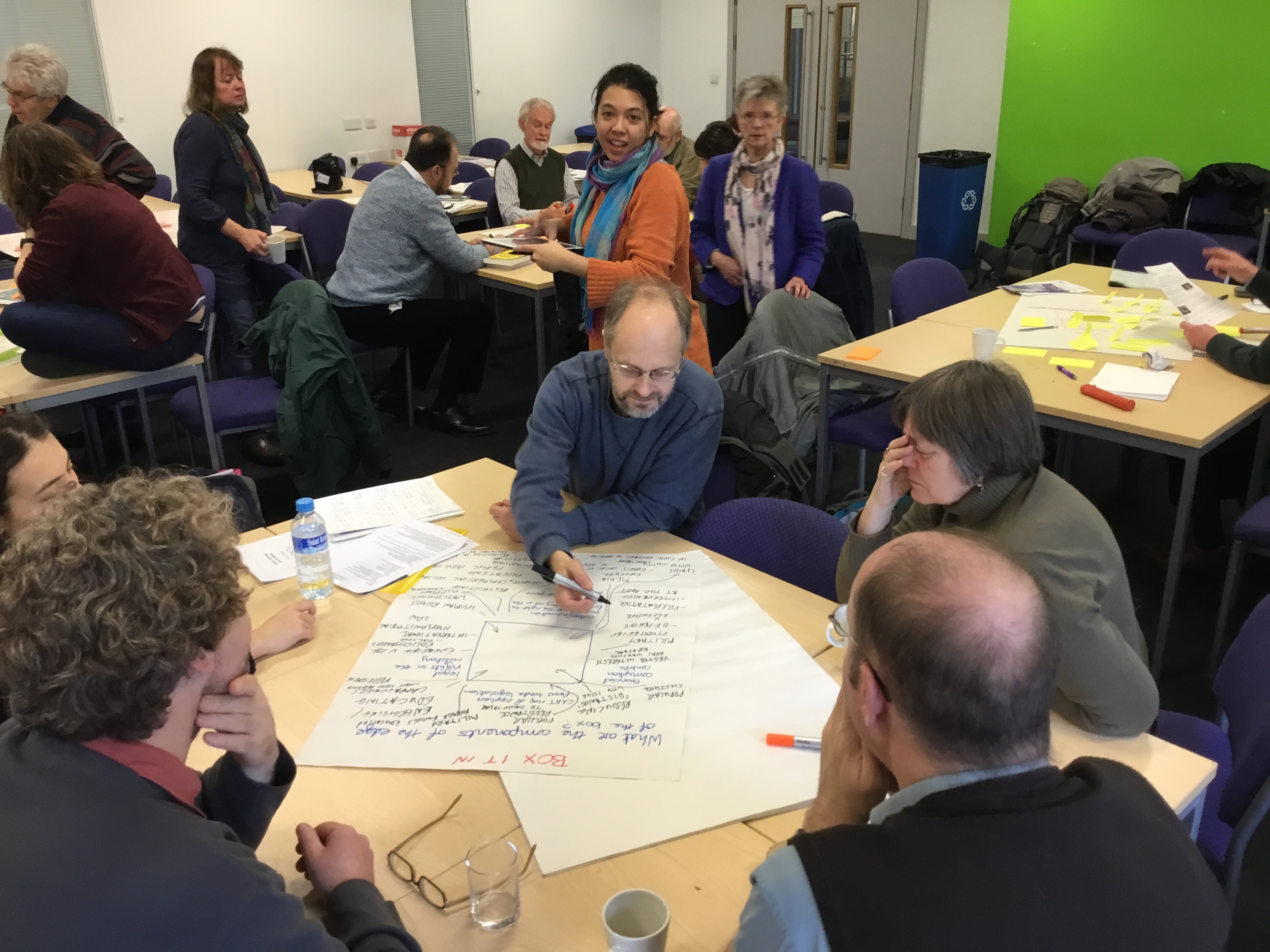How peace studies helps us build political enquiry in a General Election campaign.
Peace, nonviolence and peacebuilding are underpinned by values of listening, acknowledging the ‘other’ and seeking creative solutions that support everyone to have their needs met. In diverse communities in the UK, countries struggling to reduce violence and those engaged in peace processes, people have worked long and hard to show the importance of dialogue and conversation, of inclusivity, and how to create ways of acknowledging the continued existence and worth of the ‘other’. They do this because we know that these are processes which encourage participation, willingness to build relationships and can lead to long term change. These are the same values we profess to want from politicians.
By contrast, a General Election is typified by politicians, media and political parties wanting to make clear their differences, by creating an ‘us’ and ‘them’. Whilst this is a feature of a the electoral system and political parties want to be seen as separate from one another, it doesn’t mean everyone has to follow.
The UK is already a conflict ridden country. The very close referendum results on Scottish independence and leaving the EU, the increase polarisation in the media and physical attacks, and increase in inequality all indicate the depth and breadth of the conflicts. The General Election, whatever the outcome, will add to these conflicts. So what do we do?
Firstly, we need to have conversations and understand that everything is more complex than can be explained through an ‘us’ and ‘them’ lens. A contribution of peace studies is to show the complexity, the web, the many perspectives on every problem and issue. The General Election reporting or questioning will be trying to find out the exact policies and differences between parties but we, the people, can refuse to accept that simplicity and we can ask about their alliances (who else do they work with), their perspectives (how have they formed these views), how do they think healthcare relates to education, or how international aid relates to security. We can examine and question their statements in the light of the many existing conflicts – are they likely to bring us solutions to the conflicts, or fan the flames of dissent?
Secondly, change and influence is an uncertain process. Peace studies shows us that where there is conflict there is no single route or path through it, that it exists in cycles, and that everyone plays a part. Peacebuilder John Paul Lederach gives us the concept of ‘critical yeast’ when exploring ways to reduce and transform conflicts. His work has shown him that we need to be alert to the opportunities, conversations or people where the actions may seem small, but they have a huge impact. He uses the idea of yeast because the small contribution of yeast in baking creates a huge change. For example in this General Election time, someone with good community relationships, or a role in the media, or able to connect voters over a single issue may have a disproportionate effect on the campaigns, but yeast needs to be nurtured and have the right conditions to do it’s job. By being open to the uncertainty, being open to nurturing those who can transform conflicts, and being reflective on our own role in how conflict is expressed, we can use the power of uncertainty to
We are living in a country with high levels of conflict. We don’t have to follow the path of division and we do know how to creatively manage the conflict so that relationships are maintained or built (through talking to one another and accepting our differences). There is no certainty in conflict, regardless of the confidence of the parties, the people who are the yeast that can create dramatic shifts live and work among us – we can nurture and support them.
The first step – to Talk About Politics everywhere.
If you like listening and talking about politics then offer an hour of your time at the local food bank or community centre as a start.
Dr Rachel Julian

